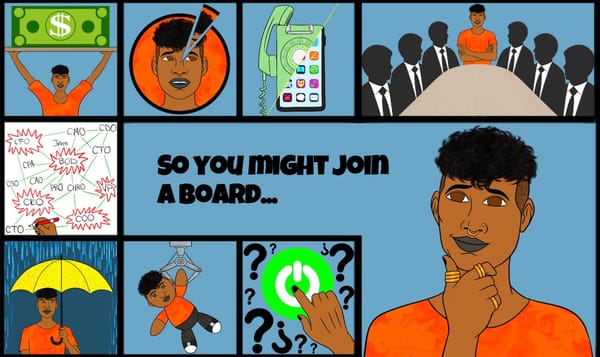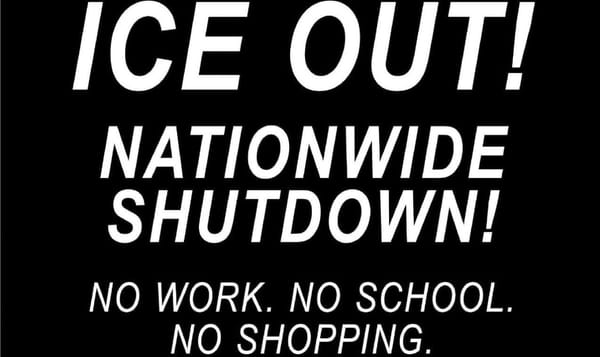how i ask questions
interviewing with curiosity

It's impossible to know another person's entire life. But trying to understand each other is a fundamental part of being human. The lives of other people are rich with history. The limitations of language leash the emotions and experiences we hold. The things we feel defy direct translation. When I'm interviewing someone, I want to ask questions that get deep into what a person wants me to know.
Early in my career I conducted STI/HIV screening and counseling. I worked at the City health clinic located in the Houston neighborhood of Sharpstown. When someone tested positive for an infection, it was my job to share the news with them. I needed to teach them about their infection to them in simple terms and explain how to treat or manage it. I then had to interview them about their sex practices and trace their history. Together, we'd log the names and details of people during the period they may have been infectious. I had to develop a rapport and get what I needed to know within 15 minutes of meeting someone. I was so good at getting the names of people's sex partners that my supervisor once joked that I should stop at 20.
My work these days doesn't carry the same urgency as local epidemics once did, but I still love talking to people. A lot goes into planning a listening session or interview. I don't take every step below every time—a lot of it runs on instinct now—but this is what goes through my mind each time.
before the conversation
Great interviews start with preparation. I ask myself:
- How can I establish rapport? What does the person need to get from me to trust me with their story? For instance, is confidentiality important to them? What about who I am (or am not) affiliated with do they need to know? Have previous interviews they've done felt like a waste of time? Being up front about my needs is as important as trying to respond to theirs.
- What is unique about this person's story? What do they know that nobody else does? What about their experience makes them unique? What similarities might I draw between their stories and others that I've heard? Where might I find valuable contrasts or shading?
- How might this person illuminate my own ignorance? What biases or perceptions do I hold about this topic or the people I'm speaking to? How can I stay neutral and open to the possibility that people will surprise me?
write down the questions
I always write down questions in advance. Even if I only have a few minutes before the call, I jot some notes and avenues that I can follow.
- Focus on the flow. I try to arrange my questions the way I think the conversation will naturally progress. If an organic flow isn't really possible, I then arrange questions based on how important it is for me to ask. Conversations always go longer than I assume they will.. It's not fun to close an hour with someone and realize you forgot to ask the most pressing question on your list!
- Send the questions in advance. I like to send my questions ahead of time so people aren't caught by surprise. There are still times when I don't send them the list ahead of time. If I have a lot of questions, I don't want them to feel intimidated by a whole list that I might not even get to. I'll also skip the list of questions if I don't want someone to show up with rehearsed or overwrought answers. In those cases, I'll share in advance the topics I'm asking about instead.
during the conversation
I don't want to overthink what I'm doing when I'm one-on-one or with a group of folks. A few things I watch for are:
- What's animating them right now? Where is there energy around a specific topic or line of conversation?
- What's having the opposite effect? Do I know why? I'm curious when someone resists a question or responds with a non-answer. Are they skipping over a response because they think it's boring or unimportant? Do they not know much about this topic but don't want me to find out? Could this be a sensitive or potentially traumatic topic for them? If that's the case, how can I avoid retraumatizing them?
- Where are they leading me? A conversation is a two-way street. People come in with their own agendas, narratives, and perspectives. Can I figure out what this person's is?
- How would I know if they're lying? I'm pretty good at sussing out the truth of what someone's telling me. If that's not a strength of yours, I don't recommend hooking someone up to a lie detector. Instead, I proceed in good faith that the people I'm talking to are telling me what's true to them. That's what I want, right? To receive and document their truth? Still, I proceed with extra curiosity about what they're telling me. Why did they say it like that? How do they know it happened the way they say it did?
after the conversation
This is a time to reflect on the conversation, how it went and what I learned.
- Debrief with myself or other interviewers. What did I learn? Where did their answers line up compared to the other people I've spoken to? What was new or unique about what they had to tell me? What am I still curious about?
- Follow up with my conversation partner. I thank them for their time and share any follow-up that I promised during the interview.
- Ask more questions. Answers almost always create more questions. Who can I ask to learn more about these things? Is there anyone, including the person I met with, who can tell me more about it?
the power of connection
Through it all, what I like about my work is that I have a genuine interest in learning what other people have to say. Not everyone is an open book, but everyone has a story. It's up to us to listen or receive it from them.



